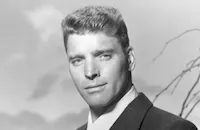Director Joshua Logan was originally slated to do the picture but that changed when the project was passed to producer Jack Cummings who dropped his option after encountering resistance from the U.S. Bureau of Prisons. Screenwriter Guy Trosper then took his script to executive producer Harold Hecht, who felt it offered a great role for his partner, Burt Lancaster. The actor not only agreed to play Stroud but became heavily involved in all the creative decisions, including the selection of the cast and crew. British director Charles Crichton, who was most famous for his comedies, soon proved to be an inappropriate choice for helming the feature and was fired after a week of filming. On the rebound, Hecht managed to get a commitment from director John Frankenheimer whom Lancaster had previously worked with on The Young Savages (1961). Ironically, Frankenheimer had once been approached to do a live television drama about Robert Stroud, but it proved too difficult to film due to the unpredictable nature of working with birds on live TV, among other reasons.
According to Gary Fiskgall in his biography, Against Type: The Life of Burt Lancaster, the filming of Birdman of Alcatraz was an emotional experience for everyone. Lancaster said, "One of the problems an actor faces, and it's a very dangerous thing, is to get so involved in a role he loses control of what he is doing. With Birdman of Alcatraz - I couldn't stop crying throughout the film. I mean, if there was a line when someone said, 'Sorry, Stroud, you can't have your parole,' I'd burst into tears."
Co-star Karl Malden, cast in the role of Warden Harvey Shoemaker, probably felt like crying too when he was faced with numerous rewrites of the script constantly. He would learn his lines the night before only to be confronted with pages of new dialogue to memorize at the morning's shoot. Later, he admitted that his on-set frustrations with Lancaster helped create the necessary on-screen dramatic tension between his character and Stroud's.
Frankenheimer faced a more serious dilemma than Malden. He was stuck with a final cut that ran four and a half hours. In John Frankenheimer: A Conversation With Charles Champlin, the director said, "Lancaster had been offered a part in Judgment at Nuremberg and he didn't know what to do. I said, 'You go do Judgment at Nuremberg and we'll re-write the script.' That's what we did. Then we went back and re-shot the whole first part of the movie. As it happened, Burt now had to wear a toupee over his own hair. There's not a frame of the movie in which you see Burt's own hair. But the result was the movie you see. I was never allowed to meet the birdman, Robert Stroud. Lancaster finally saw him after the movie was completed. And Stroud himself was never allowed to see the movie. He died without having seen it."
Birdman of Alcatraz was nominated for four Academy Awards including Best Actor (Lancaster lost to Gregory Peck for To Kill a Mockingbird), Best Supporting Actor (Telly Savalas - he lost to Ed Begley for Sweet Bird of Youth), Best Supporting Actress (Thelma Ritter - she lost to Patty Duke for The Miracle Worker), and Best Cinematography by Burnett Guffrey. Unfortunately, Elmer Bernstein's touching, evocative score was not nominated but it remains one of his career highpoints.
Producer: Harold Hecht (executive producer), Stuart Millar, Guy Trosper
Director: John Frankenheimer
Screenplay: Thomas E. Gaddis (book), Guy Trosper
Cinematography: Burnett Guffey
Film Editing: Edward Mann
Original Music: Elmer Bernstein
Principal Cast: Burt Lancaster (Robert Stroud), Karl Malden (Harvey Shoemaker), Thelma Ritter (Elizabeth Stroud), Neville Brand (Bull Ransom), Betty Field (Stella Johnson).
BW-149m. Letterboxed. Closed captioning.
by Jeff Stafford





































